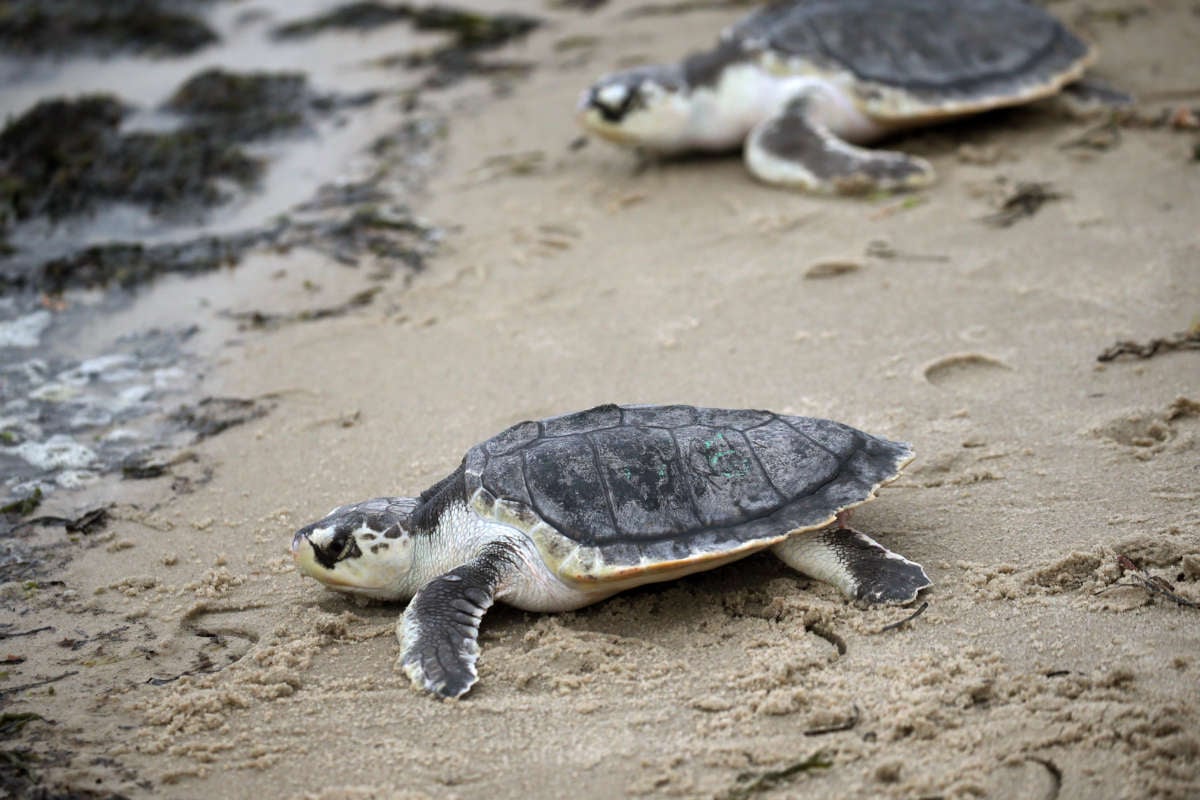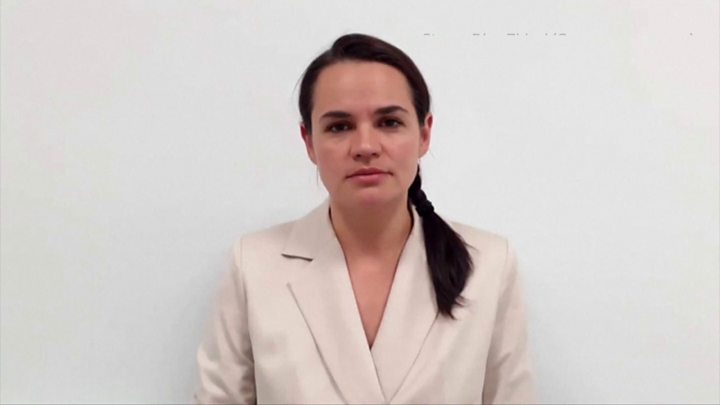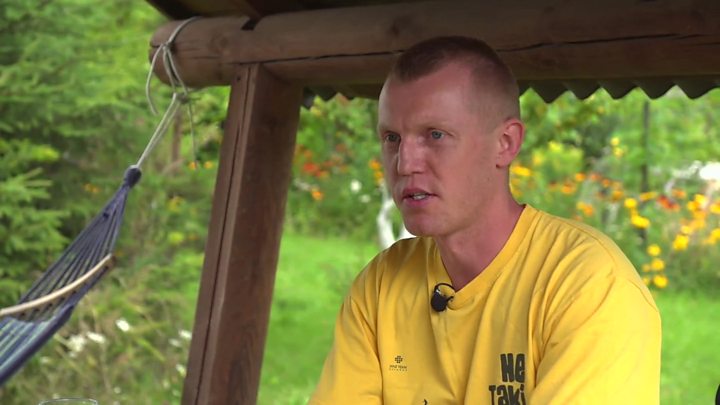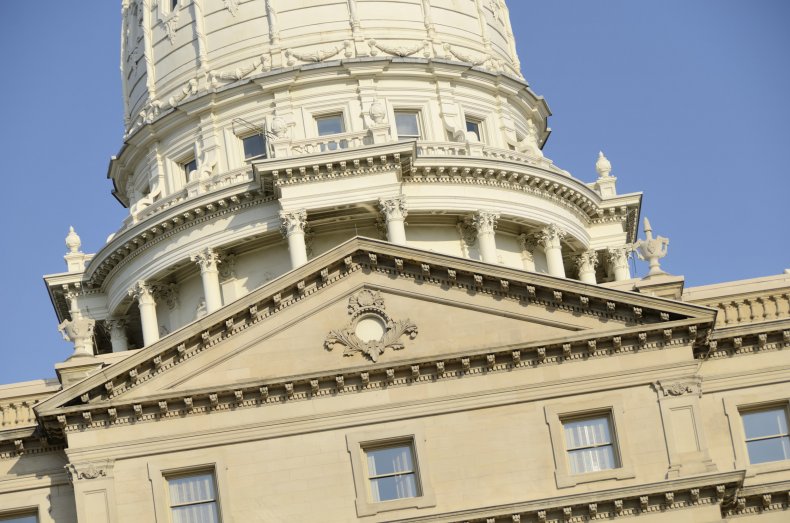
A couple of endangered Kemps ridley turtles make their way to the ocean at West Dennis Beach in Dennis, Massachusetts, on July 1,
2020.DAVID L. RYAN / THE BOSTON GLOBE VIA GETTY IMAGES
BY Emerson Urry, EnviroNews August 15, 2020
In what prominent conservation group WildEarth Guardians (Guardians) is calling “death by a thousand cuts,” the Trump Administration is at it again, with another proposed change that would weaken the overwhelmingly popular Endangered Species Act (ESA/the Act). This go-round features an attempt to define the word habitat — literally — in an effort to affect what can be classified as critical habitat. If successful, the effort is one that Guardians, and the Center for Biological Diversity (the Center), say would make it harder to protect imperiled flora and fauna in “degraded areas.” Guardians told EnviroNews it is currently “assessing [its litigative] options.”
Living at a URL address that bares the words, “proposed definition of habitat,” the U.S. Fish and Wildlife Service (USFWS) — an ancillary arm of the Department of the Interior (DOI), alongside the National Marine Fisheries Service (NMFS) — an underlying subsidiary of the National Oceanic and Atmospheric Administration (NOAA) run by the U.S. Department of Commerce (USDC), released the proposed rule on July 30, 2020. The amendment would revamp what is ultimately meant by critical habitat by defining the word habitat for the first time — a move environmentalists say would have grave consequences for critters and plant-life in distress.
“Clearly, this administration does not care what the American people want; they only care about enriching their cronies in extractive industries,” Taylor Jones, Endangered Species Advocate with Guardians, told EnviroNews in an online interview. “This is part of a long pattern of environmental rollbacks aimed at plundering public lands and resources for private gains.”
The title of the document is: Endangered and Threatened Wildlife and Plants; Regulations for Listing Endangered and Threatened Species and Designating Critical Habitat. Published first on the USFWS website, the two agencies explain the definition as if this is a simple semantic upgrade, mandated by a court ruling, writing, “The Supreme Court recently held that an area must logically be ‘habitat’ in order for that area to meet the narrower category of ‘critical habitat’ as defined in the Act, regardless of whether that area is occupied or unoccupied.” But opponents of the linguistic tweaks, say a more sinister plot is at play.
The proposal’s summary reads:
We, the U.S. Fish and Wildlife Service (USFWS) and the National Marine Fisheries Service (NMFS) (collectively referred to as the “Services” or “we”), propose to add a definition of “habitat” to our regulations that implement Section 4 of the Endangered Species Act of 1973, as amended (Act).
On page four of the document, the proposed “Definition of Habitat” reads thusly:
We propose to add the following definition of the term “habitat” to § 424.02:
The physical places that individuals of a species depend upon to carry out one or more life processes. Habitat includes areas with existing attributes that have the capacity to support individuals of the species.
In addition, we have provided, and solicit comment on, an alternative definition of “habitat” as follows:
The physical places that individuals of a species use to carry out one or more life processes. Habitat includes areas where individuals of the species do not presently exist but have the capacity to support such individuals, only where the necessary attributes to support the species presently exist.
At first glance, the wording may not seem overly significant, but Noah Greenwald, Endangered Species Director with the Center for Biological Diversity, warns the language will have a “big impact.” “By inserting the phrase ‘existing attributes,’” Greenwald explained to EnviroNews in an exclusive interview, “the definition requires that an area be able to presently support a species for it to be designated as ‘critical habitat.’”
This means that if an area, vital for the survival of a species, has been trashed by industrial plunder or gobbled up by rural sprawl to the point where it can’t sustain a wildlife community, it can be disqualified from being included under the Act. “This is problematic because oftentimes habitat needs to be restored before it can support a species, but [it frequently] needs protection [first] for this to happen,” Greenwald asserted.
The alternate definition offered up for comment by the agencies carries the same issue, if not more blatantly than the primary definition with the wording: “only where the necessary attributes to support the species presently exist.” But with this phrase, and the “existing attributes” text in the primary definition, wildlife advocates say it would be difficult, if not impossible to include, restore and manage countless key areas that should be reclaimed and made suitable for wildlife again.
“The implementation of ‘critical habitat’ designation has already been weakened by [other] rule changes [during the Trump Administration.] This change further limits what can be defined as ‘habitat,’ hamstringing efforts to restore degraded habitat where species once lived but no longer can,” Jones continued to EnviroNews.
And Greenwald says the potential effect of this wording change isn’t simply theoretical; he says it’s likely it will be tested very soon. “One example is areas of young, logged forest within currently designated habitat for the northern spotted owl (Strix occidentalis caurina),” Greenwald continued. “Based on a settlement with the timber industry, we’re expecting a revised designation for the owl any day, so we may see the impact of this proposed rule shortly.”
A 30-day public comment period was opened from the day the document was published online in the Federal Register on Aug 5. Leaders from environmental groups are encouraging members of the public to weigh in with a message for these government agencies: leave the ESA alone. Readers may visit the public comment page directly at this link: https://www.regulations.gov/docket?D=FWS-HQ-ES-2020-0047. But please, read on first.
Tiny Frogs, Massive Court Ruling
The litigation that led to the recently proposed definition surrounds the critically endangered dusky gopher frog (Lithobates sevosus) — an increasingly rare creature in the southern U.S. In that Nov. 2018 case, Weyerhaeuser CO. v. United States Fish and Wildlife Service, a major setback was handed down to the imperiled creature, also known as the Mississippi gopher frog, when the Supreme Court punted the issue back to the 5th Circuit Court of Appeals, after that court upheld a ruling from the District Court designating specific private lands as critical habitat for the creature.
In 2012, the International Union for Conservation of Nature (ICUN) ranked the frog as “one of the top 100 most endangered species in the world.” All remaining specimens survive in one intermittent pond in Mississippi. Recognizing the species is in grave danger of extinction, the USFWS designated an ephemeral pond in Louisiana as critical habitat for the dusky gopher frog. It has to live in intermittent water sources to avoid fish eating its eggs and young. The bumpy-looking amphibian once lived in this Louisiana pond, but hasn’t been seen there since the 1960s.
The land owner and Weyerhaeuser Company, a logging enterprise, sued. They lost both at the district and appeals court levels under conservative judges. But those rulings weren’t good enough for the country’s highest court.
“The landowners urge that their land cannot be critical habitat because it is not habitat, which they contend refers only to areas where the frog could currently survive,” Chief Justice John Roberts wrote on behalf of the Court.
And the Supreme Court came down 8-0 on the issue (Justice Brett Kavanaugh had not yet been confirmed), instructing the lower court to reexamine how it evaluated “costs and benefits” when designating critical habitat on private land. After acknowledging, “The dusky gopher frog once lived throughout coastal Alabama, Louisiana, and Mississippi, in the longleaf pine forests that used to cover the southeast… But more than 98% of those forests have been removed to make way for urban development, agriculture, and timber plantations,” Roberts wrote this:
Our analysis starts with the phrase “critical habitat.” According to the ordinary understanding of how adjectives work, “critical habitat” must also be “habitat.” Adjectives modify nouns — they pick out a subset of a category that possesses a certain quality. It follows that “critical habitat” is the subset of “habitat” that is “critical” to the conservation of an endangered species. Of course, “[s]tatutory language cannot be construed in a vacuum,” and so we must also consider “critical habitat” in its statutory context.
Roberts continued:
Only the “habitat” of the endangered species is eligible for designation as critical habitat. Even if an area otherwise meets the statutory definition of unoccupied critical habitat because the Secretary finds the area essential for the conservation of the species, Section 4(a)(3)(A)(i) does not authorize the Secretary to designate the area as critical habitat unless it is also habitat for the species.
The Center for Biological Diversity contends that the statutory definition of critical habitat is complete in itself and does not require any independent inquiry into the meaning of the term “habitat,” which the statute leaves undefined. Brief for Intervenor-Respondents 43–49. But the statutory definition of “critical habitat” tells us what makes habitat “critical,” not what makes it “habitat.”
The ruling handed a defeat to the defendant, the USFWS, and the frog — a unique species that has no way to speak up for itself — a unique species limited to around 100 adult specimens, in an intermittent water source, in the historically red state of Mississippi.
“Death by a Thousand Cuts”
This certainly isn’t the first time the ESA has taken a blow in recent years; the Act has suffered several “cuts” inflicted under the Trump Administration and the legislature — and Governors have had the ESA in their sights too. Since Donald Trump first took the helm, one assault after another has been hurled at the ESA. In the first two years of Trump’s presidency, he had both a Republican House and Senate, whereafter several volleys of attacks were waged against the Act — a successful cornerstone of U.S. legislation — and a law that polls have shown nearly 80 percent of Americans support.
Only a month into Trump’s presidency, an article by EnviroNews Nature titled, Republicans Lick Chops While Revving up to Dismantle the Endangered Species Act, examined an eyebrow-raising hearing in the Senate Environment and Public Works Committee (EPW) called, “Oversight: Modernization of the Endangered Species Act,” wherein multiple “upgrades” were proposed — many of which aimed at delisting species already protected under the Act more quickly.
And it wasn’t only the legislature that was going after the ESA in Trump’s first two years, it was at least 20 governors as well. Only days after the EPW committee meeting, 300 NGOs and environmental groups signed a unified letter demanding the Western Governors’ Association (WGA) “maintain the statutory integrity” of the Act throughout the West — this, after the WGA’s 2016 Resolution called for amendments to the ESA.
A few months later, Senator John Barrasso (R) of Wyoming chaired another meeting in the EWP Committee called, “Conservation, Consultation and Capacity: State Views on the Need to Modernize the Endangered Species Act,” where multiple tweaks, changes and additions were proposed, including turning more management power over to state governments. Barrasso has been one of the leading forces in the legislature trying to “modernize” the act. The Center has established a webpage that tracks his voting record and reports, “Sen. Barrasso has voted against the Endangered Species Act 13 times since 2011 and has sponsored/cosponsored at least nine anti-ESA bills since 2015 (the page has not been updated since July 27, 2017).” In the February hearing, Barrasso said, “[the ESA] is not working today.” The Center counters by pointing out, “The ESA has been more than 99 percent effective at saving species under its protection from extinction and has put hundreds more on the road to recovery.”
More recently, the Trump Administration levied three new rules targeting Sections 4 and 7 of the ESA respectively. The changes redefine “environmental baseline,” exclude critical habitat designations for species threatened by climate change, and for the first time, allow economic considerations to be factored into listing decisions — something expressly forbidden by Congress in 1982 to protect against political meddling in the process. Guardians wrote this in response to the new Trump Admin rules:
In August of 2019, the Trump Administration finalized three regulatory rollbacks that drastically weaken the Endangered Species Act nationwide, setting back the recovery of virtually every endangered and threatened species and making it considerably harder for species to gain protections in the first place.
The Battle to Protect the Endangered Species Act Continues
In yet another environmental mega-suit, a large team of conservation NGOs have teamed up to sue the Trump Administration for its 2019 rule changes. The plaintiffs include: WildEarth Guardians, the Center for Biological Diversity, Earthjustice, the Sierra Club, Natural Resources Defense Council (NRDC), National Parks Conservation Association, Defenders of Wildlife and The Humane Society of the United States.
The lawsuit, filed by Earthjustice on behalf of all the other plaintiffs, contends, “Taken together, this package of regulatory changes undermines the fundamental purpose of the ESA ‘to provide a means whereby the ecosystems upon which endangered species and threatened species depend may be conserved, [and] to provide a program for the conservation of such endangered species and threatened species.’” In a joint press release, the groups refer to the amendments as the “Trump-Bernhardt Extinction Plan.”
WildEarth Guardians and the Center for Biological Diversity are no newcomers when it comes to fighting for the ESA — or for individual species in danger of extinction. In fact, the two NGOs, together in a joint lawsuit, gained the ordered protection of some 800 species under the Act in 2011 following a decade-long behemoth battle with the federal government. The victory represents what is arguably the most significant endangered species ruling ever handed down by the courts. Both organizations boast over a 90 percent success rate when suing the federal government in endangered species cases.
And it’s not only NGOs that are fighting tooth and nail to protect the integrity of the ESA — there are some legislators that have a hand in the fight as well. In Sept. 2019, Rep. Raul Grijalva (D-NM) introduced the Protect America’s Wildlife and Fish in Need of Conservation Act, or “PAW and FIN” for short. That bill seeks to fight back against the same rollbacks as last year’s Earthjustice lawsuit. The bill has been stalled in the House, but environmental groups are “looking for more Senate support,” Jones concluded to EnviroNews.


























